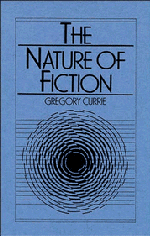Summary
There are fictions that contribute to the enterprise of philosophy. And there are intellectual traditions for which fiction is a natural means to the expression of philosophical ideas. But the tradition in which I feel most at home is not one of them, and I leave it to others to explore the ways in which fiction does or could contribute to a philosophical explanation of the world. Instead I shall treat fiction itself as something that needs explaining. This is a book written in the belief that there are certain very general questions about the nature of fiction, the answers to which can be discovered more or less a priori by appeal to the methods of philosophy rather than to those of the critic or literary historian. How we come to have the kind of fiction we do have is one question; how it is possible for us to have any fiction at all is another, and that is the question I want to ask. It is a question that resolves into several others: What, if any, are the characteristics that distinguish a work of fiction from a work of nonfiction? What sorts of entities must the world contain in order for there to be fiction? What psychological and linguistic resources must we bring to the world in order to be producers and consumers of fiction?
- Type
- Chapter
- Information
- The Nature of Fiction , pp. ix - xiiPublisher: Cambridge University PressPrint publication year: 1990



